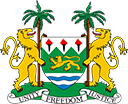In all Parliaments in the world, time is of the essence. Hence much of the functions of Parliaments are performed through Committees of the House. It may be difficult to consider, in detail on the floor of the House, the legislative, oversight and deliberative functions of Parliament. A great deal of the business of the House is therefore transacted in Committees. MPs spend more time attending Committee meetings than attending Parliamentary sittings. Committees have made parliamentary work a full-time job for MPs.
A Parliamentary Committee is a small group of Members of Parliament, created and empowered by Parliament to perform a specified task. A Committee consists of Members drawn from political parties in Parliament based on the strength of their representation in the House. (Section 93(5) of 1991Constitution)
The Committees: hold their meetings in Parliament but may convene outside the precincts of Parliament with the permission of the Speaker; do not meet while the House is sitting but may sit while the House is adjourned for recess. (S. O.73 (7) may determine its own subject for deliberation and for oversight (S.O.73 (5)
Committees are created by Parliament and hence enjoy the powers, privileges and protection that Parliament has under the Constitution. The rules of procedure contained in the Standing Orders 2006 (Revised) apply in equal measure to proceedings in plenary and the Committees. Hence proceeding in a properly constituted Committee is recognized as proceeding in Parliament.
The Committee Department is headed by a Director, who works with a team of twenty (20) Committee Clerks to service the various Parliamentary Committees.
Establishment of Parliamentary Committees
Subsection 1 of Section 93 of the 1991 Constitution of Sierra Leone provides that:
At the beginning of each session of Parliament, but in any case not later than twenty one days thereafter, there shall be appointed…the following Standing Committees, that is to say
1.The Legislative Committee;
2.The Finance Committee;
3.The Committee on Appointments and Public Service
4.The Foreign Affairs and International Cooperation Committee
5.Public Accounts Committee
6.The Committee of Privileges
7.The Standing Orders Committee
such other Committees of Parliament as the rule of procedure of Parliament shall provide.
Sub-section 2 of Section 93 provides for the establishment of Oversight Committees to parallel and oversee the Ministries, Departments and Agencies (MDA) established by the executive each Committee bears the name of the MDA it oversees, e. g. Health and Sanitation Committee, Mines and Minerals Committee etc. etc.
By the provisions of Section 93 (4), there is no limitation in the powers of Parliament to create Committees. Parliament may at any time appoint any other Committee to investigate any matter of public importance.
Functions of the Oversight Committees
By the provisions of Section 93 (3), it shall be the duty of Committees set up under subsection (2) of the Constitution, 1.To investigate or inquire into the activities or administration of such Government Ministries or Departments as may be assigned to them and such investigation or inquiry may extend to proposals for legislation.
2.To be more specific, they can review/scrutinize: the laws governing the administration and general operations of the MDAs assign to them;The programmes, plans, policy objectives and operations of the MDAs and the effectiveness of their implementation to scrutiny and debate;
3.The immediate, medium and long term expenditure plans of the MDA and the effectiveness of the budget execution thereof; analyse the relative success of the MDAs in meeting their objectives scrutinise policy programmes, legislation and general oversight of the executive etc. etc.
Transparency Committee looks into adherence to administrative, financial and procurement procedures, conflict of interest, impropriety etc. etc.
The Legislative Committees plays an important role in the legislative process. (S.O.55-56)
Powers of the Oversight Committees
Pursuant to subsection (6) of Section 93 of the 1991 Constitution, each of the Committees enjoys the powers, rights and privileges of the High Court in respect of:“enforcing the attendance of witnesses and examining them on oath affirmation or otherwise;
“compelling the production of documents and “the issue of a Commission or request to examine witnesses abroad;
Citation of contempt of Parliament for impeding the work of Parliament /Committees, for affronting its dignity; (Section 95 of Constitution)
The power to summon Ministers to give an account of any matter falling within his portfolio or to explain any aspect of Government policy” (Section 107 (2) of the 1991 Constitution and S.O.76 (6)
Allow strangers to attend meetings but the Committee Chairman may ask them to withdraw at any time during the deliberations of the Committee. S.O.73 (21)
The proceedings of a committee cannot be published until it has tabled its report in the House. S.O.75
Committees enjoy the relative independence of selecting their own subject matters for deliberation and for oversight functions. S.O.73 (5)
List of the Committees of Parliament
Domestic/Housekeeping Committees
1.Committee of Selection
2.Business Committee
3.Standing Orders Committee
4.House Committee
5.Committee of Privileges
6.Public Petition Committee
7.Supervisory Committee
Departmental Oversight Committees
The Sierra Leone Parliament currently has thirty-one (31) Oversight Select Committees namely:
1.Public Accounts Committee
2.Committee on Appointments and the Public Service
3.Finance Committee
4.Legislative Committee
5.Committee on Foreign Affairs & International Cooperation
6.Committee on Political & Presidential Affairs
7.Committee on Defense & Office of National Security
8.Committee on Internal Affairs
9.Committee on Works, Housing and Maintenance
10.Committee on Transport and Aviation
11.Committee on Local Government & Rural Development
12.Committee on Education
13.Committee on Agriculture and Food Security
14.Committee on Mines and Mineral Resources
15.Committee on Privileges
16.Committee on Trade
17.Transparency Committee
18.Committee on Health and Sanitation
19.Committee on Labour and Industrial Relations
20.Committee on Lands and the Environment
21.Committee on Fisheries and Marine Resources
22.Committee on Information and Communication
23.Committee on Energy
24.Committee on Water Resources
25.Committee on Human Rights
26.Committee on Social Services
27.Committee on Youth Affairs
28.Committee on Sports
29.Committee on Tourism and Cultural Affairs
30.Committee on NGOs and NaCSa
31.Committee on Sustainable Development Goals (SDGs)
subscribe to ourNEWSLETTER
Sign up for newsletter to get the latest news, announcements and event information.

